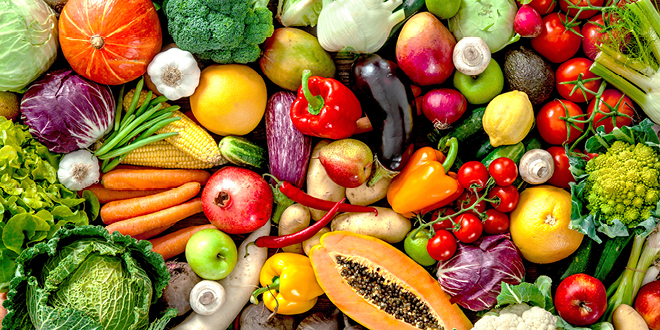Clergy Reflections (Jul - Dec 2019)
Each month, one of our clergy team contributes an item to our Parish Magazine that is designed to provoke thought and reflection about a topical issue. For recent articles, see below or check out the archive.
December 2019/January 2020
Elect and precious of God.
Have you noticed, there’s going to be an election soon? Maybe that fills you with hope, or despair, or indifference. But however we feel, it’s an important moment in our nation’s life, and one that we should consider thoughtfully and prayerfully, if we have been blessed with a vote to cast.
After the election, different Christians will react in various ways, depending on the outcome. Assuming some clarity is achieved though this ballot, some will be pleased at the form of the new Parliament and Government, others will be disappointed. Or perhaps, if our politics remains as confused as it has been recently, and the outcome is inconclusive, many of us will retain the frustration which has hovered over our national life for some time now.
But, whatever the outcome, I’d like to suggest some principles which all Christians can embrace as a new Parliament begins.
The first is: Respect. I draw this from Romans 13.1-10. ‘There is no authority except from God, and those that exist have been instituted by God.’ Paul teaches that God does not want anarchy in the world. States and their leaders, called to create a condition of peace and stability within which their peoples can safely thrive, are doing a task which serves the Lord. So they should be respected, and not dismissed out of hand, abused, or treated with contempt. God has a sacred task and a duty for them to perform, for our common good.
A sign of respect is present in my second principle: Prayer. This is seen in I Timothy 2.1-6. ‘I urge that supplications be made for ... kings and all who are in high positions, that we may lead a quiet and peaceable life...’ Whether we agree with some, or most, or little of what our leaders may do, they need our prayer, every day. For they are doing a task which ultimately comes from God, whether they know it or not. And the more prayer offered, by them, and for them, the more faithful to God we may hope and trust they shall be.
For like us they are human, and fallible, which brings me to my third principle: Challenge. Desmond Tutu was sometimes urged by other Christians to be silent about apartheid. ‘Haven’t you read Romans 13?’ he would be told. ‘Yes, but I have also read Revelation 13!’ he would reply. The prophetic tradition teaches us that worldly rulers can go wrong, in some cases drastically wrong, and will need reminding of God’s call to establish justice and peace. ‘Give justice to the weak and the needy, deliver them from the hand of the wicked’, urges Psalm 82. There is no contradiction between prayerful respect for our leaders and moments of complaint and challenge: the challenge to Christian citizens is to faithfully combine these principles together.
I hope these thoughts may help as we face a new year and a new political regime. They are not the last word on the matter – there will be other scriptures which could be helpfully pondered, and other teachers may differ in their interpretation! But imagine if we and everyone in our land embraced these principles. First, a culture of respect for all politicians. No death threats, no screamed abuse, no rants on social media. Second, a commitment to prayer – for political allies and opponents alike, recognising their vocation from God and service to the Lord in what they do. Third, a readiness to challenge those in authority to seek and serve the justice of God, yearning not for their own exaltation, but for the building of God’s kingdom.
If we all did that in Britain, deliberately and consistently, wouldn’t it revive our nation and our world? And if it’s ever going to start happening, why mightn’t it begin with me, and you?
May God bless you richly in 2020. Derwyn.
November 2019
Moving On!
Many people have reminded us that the action of moving home is one of the most stressful experiences. As I write this it is one week before moving day, and I am surrounded by all that has accompanied our lives, some of it already packed in boxes, over the past 34 years. The exercise has provided an opportunity to throw out, at times quite ruthlessly, books, documents, photos, files, clothes, old tools – the list is endless. And, in the course of doing so, memories have been triggered, old friends have come to mind from an inscription in a book or the greeting on a birthday card, or a photo from school days. All this has been hard work, but, hopefully, rewarding in the long term as our lives continue in a less physically cluttered state, and, in a deeper way, a renewed perspective on what really matters to us.
A spin off from all this activity has been some quieter moments of reflection as we have been truly conscious of God’s timing. This journey started about 6 years ago when we began to question if we should ‘move on’ into a dwelling that would be more manageable for two OAPs! I have found myself thinking about that phrase ‘moving on’. Literally we use it simply to indicate when we are moving as in “moving on next Friday”. But we also use it in deeper contexts. Someone seeking to build their career might talk of moving on to experience new avenues of work and service. Sometimes families pool their talents and knowledge and seek together to build a new, more fulfilling life often in a completely new environment. Conversely, we often read of families, displaced by war or natural disaster, being asked to ‘move on’ to some other place where they will be better received. And in the world of human relations, those who care about people who have suffered some sort of trauma, often speak about doing their best to move someone on from their present attitudes and state of mind. Much of the aid effort marshalled together following a humanitarian or natural disaster, is aimed to help people to move on at least to recover their dignity and security.
When we survey the Biblical story, we meet a God whose word, or breath, breathes into his creation the breath of life. Freedom and responsibility are the Creator’s gifts and they come with a covenant, that is a promise by the Creator, that whatever his creation does, he will always love. He gives some rules to live by and we choose to do so or not. As the story unfolds, despite our disobedience, God is always seeking to move his people on. Through flood, slavery, desert wanderings, settling in a promised land, conquests, exile and restoration, moving on summarises what God is doing. Why? Because he longs for people to respond to his love; to see that the best way to live and relate at all levels, from individuals to nations is God’s way; to be more God-like in our lives. But he never forces himself upon us; that is never the way of love. To emphasise the point, Jesus comes. For those precious three and a half years of his wandering ministry, he is always looking to move people on in their knowledge and understanding of the ways of God and His Kingdom. At one point he gives ad- vice to his closest friends about proclaiming the Kingdom by exhorting them to declutter their lives so that they are as open as possible to the promptings of the Spirit.
So this is where my reflections on moving on have led us. For myself, I look for- ward to “going deeper into God” in my advancing years(!). My prayer for you is that, wherever you are on your Christian journey, you will continue to be open to God moving you on and maybe allow him to point to the clutter that is getting in the way, and the opportunities that present themselves day by day in our Christian community!
With love and prayers, Derek
October 2019
Stoptober, Movember, Decembeard, Veganuary..... 
Have you noticed how the calendar has been changing in recent years? The months have been hijacked by a variety of good causes, often linked to charitable activities or opportunities for self-improvement.
So in this, the month formerly known as October, you might keep the season of ‘Stoptober', and make a renewed effort to stop smoking, with the help of the NHS. Or perhaps you prefer to ‘Go sober for October’ (why didn’t they call it ‘Octsober’?) and lay off alcohol in support of a cancer charity.
Lots of these newly-styled months seem to involve doing things with hair. In ‘Movember’ men can grow a moustache in support of prostate cancer charities. Presumably November was chosen because if the result isn’t great, the moustache can safely be removed for the party season. That option disappears, however, if you embrace the more heavy-duty month of ‘Decembeard’, going all-in on the facial hair to support those affected by bowel cancer. If that hasn’t been a great success either, you might wait until the fourth month of the following year and take part in ‘Shaveril’, going clean- shaven in the spring in support of MIND.
Several of these monthly challenges support cancer charities. ‘Manuary’ delays the beard-growing until after Christmas, raising awareness of head and neck cancer. ‘Dry July’ places sobriety in the summer, again linked to cancer support. But there are other causes too. ‘Veganuary’ encourages the vegan lifestyle for a new year – maybe attractive if we’ve just been binging on turkey. Or we can keep ‘Februhairy’ (more hair involved) for Sue Ryder. Perhaps the strangest example is Ape-ril, which apparently encourages us to release the wildness of our ‘inner ape’ to help with Orangutan conservation in Asia.
Now: this is all great fun, and does lots of good stuff for excellent causes. But I wonder what it says about the way we understand time, and structure our lives? The year that runs from Veganuary to Decembeard offers lots of opportunity to improve ourselves and help others. That’s great. But it leaves everything down to us, and could make the year a constant cycle of striving and achieving: sometimes succeeding, often failing and needing to start over again. It’s not a calendar that offers any ultimate hope or destination. Its months just go round and round and round.
Contrast that to the structure of the Christian Year, which trains our faith in eternal salvation, guiding us through the drama of our redemption. Its seasons do give shape to our earthly living: celebrating harvest in the autumn, encouraging Lenten restraint and fasting in the late winter, offering feasts and fun in midwinter and in spring. But as it guides us through each year of our mortal lives, the church year points us towards heaven. It climaxes with resurrection hope each Easter, and revisits that hope, specifically and individually, every November at All Saintstide.
After the quieter interlude of summer (all those ordinary ‘Sundays after Trinity’), our church festival cycle gears up again in the autumn. So do make the most of Steptember, Stoptober, Movember and Decembeard if you feel called to! But let’s not neglect times like Harvest, Bible Sunday, All Saints, All Souls, Remembrance and Advent. These moments can tell us so much about where we’ve come from, where we’re going, and how to live in Christ along the way.
Blessings from Derwyn.
September 2019
Happy New Year!
My best wishes to you all as we begin an exciting new year! No, don’t worry, I haven’t filed my January magazine copy four months early, or lost track of time. I’m referring to the beginning of the academic year which comes anew every September.
Once we’ve left education ourselves, or our children have finished their school years, it’s easy to forget what an important transition every September marks. But perhaps you can remember your very first day at primary school. Was it filled with excitement, or did you cling to mother’s skirts, not wanting to be parted from her? Can you recall your arrival at secondary school: perhaps negotiating a strange new campus, making new friends, missing old ones? Or your first term at university: the excitement of independence, the trepidation of a new self-responsible life? All of these big moments are firm in my own memory, and seem to surface again powerfully at this time of year.
So right now, a new year is beginning for lots of young people. Little ones are going to nursery or reception classes for the first time. Other children are moving up from Key Stage One to begin what used to be called ‘Juniors’, or making the big move to secondary school. And another crop of eighteen year olds will be leaving home to begin their studies at university. Can you spare a thought, or better, a prayer, for someone you know who’s making one of these exciting, daunting transitions?
For while the world of education is one of the places God works mightily, enabling us to grow and flourish as human beings, it can also be a place of big challenges and stretching demands. Can you also say a prayer for teachers and lecturers, and school staff and governors, as they pick up their responsibilities this autumn? Having been a church school governor for 19 years now, I’ve been privileged to see and share lots of the wonder and fulfilment that teachers gain from educating children. Equally, I’ve witnessed something of the pressures and demands that working in an ever-increasingly complicated educational world can foster. Do pray for all educators, in the joys and burdens of their vocation. And pray for young people too, as we read of increasing levels of childhood mental health problems, to which I’m sure our hyperactive, stressful modern society must be a contributor.
Two final appeals: can you pray for the incoming Head Teacher of St Michael’s School, Mrs Joanne Fradd. Mrs Fradd is joining us from Debden Primary School, where she has been Acting Head, and we’re delighted to welcome her to lead the school into its next phase of service and development. Joanne will be participating in Parish Praise at 10 a.m. on Sunday 1st September, when we’ll have opportunity to pray for her and for the school. And can you pray for the group who will be proposing a plan to appoint a Families Minister for our Church, at the September PCC? We’d like to strengthen our support and outreach to young families in our parish, town and schools through this appointment. So please pray for wisdom and success in this endeavour, to broaden and deepen the work we can do with younger generations.
Finally, even if this time of year no longer brings feelings of freshness and newness to us, can we look out for someone who is making a big step in their young life right now, and encourage them with our support for a ‘Happy New Year!’?
Derwyn.
July and August 2019 
By the time you read this, many of you will have made plans for your holidays, particularly if you have children who are looking forward to their annual six week break from school! Holidays are an opportunity to relax from our normal busyness; to do something different; to explore something or somewhere new; to catch up with some of those jobs that you have been meaning to do; and, perhaps above all, to re-bond with family and friends. The need for all of us to have holidays is built into the national calendar from New Year’s Day to Boxing Day! As a result, holidays are big business.
As I thought about all this, I recalled a previous Bishop of Hertford reminding his people that our lives as Christians consist of three main ingredients – work, rest and prayer. Work includes anything we are committed to do whether or not we are paid to do it. For the young people, work is what they do at school. Rest is what occupies our time when we are not working, and includes holidays, following interests/hobbies and literally putting our feet up! Prayer is more than just saying prayers, but about a deepening relationship with God, and therefore includes worship, fellowship, sharing in the life of a Christian community as it seeks to love people in God’s name. The Bishop went on to point out that many of the folk he met, whatever their age, were so ‘busy’ that they seemed to have little time to ‘rest’ and even less time for ‘prayer’. In short most of us have got our priorities wrong. The Bishop encouraged us to get our priorities in the right order – prayer, rest, work. As soon as we put it that way, we know deep down that it is the right way, but we struggle to make changes to our habits that will make a real difference. And perhaps we do not really believe that, conducting our lives with that order of priorities, will make a real difference to us and to those around us.
Holidays are a golden opportunity to spend time reflecting on all this and maybe taking some steps to adjust our use of time, and begin to discover that prayer, rest, work is a refreshing and rewarding way to lead our lives day by day. Better still if you can share your experience with someone else, partner, friend, soul mate, so that you can give mutual encouragement.
I sometimes think that, for many people, the summer period is like a crossroads where choices often have to be made, or, at any rate, changes have to be faced whose outcome we may not be confident about. For the children, one school year ends and another, perhaps in a new school or at university, is about to begin.
For adults, decisions about where to live to meet the family’s needs may have to be made. More so these days, changing a career is much more common than it used to be, and decisions made have repercussions on families and their relationships. For the older people, maybe the holidays will provide opportunities to think about how best we can spend our retirement, and give something back to those who have supported us over the years.
I wondered what the Bible had to say on this theme of ‘crossroads’ being a place of decision. By definition, crossroads happen when two well trodden paths intersect, and by far the most commonly used Hebrew word for a well trodden path is translated simply as ‘way’. In some modern translations, this word is translated to ‘crossroads’ For instance, Jeremiah 6:16 (NIV) says, ‘Stand at the crossroads and look: ask for the ancient paths, ask where the good way is and walk in it, and you will find rest for your souls.’ This was written at a time when God’s people were about to be exiled from Jerusalem to Babylon. Basically they had been disobedient to God’s commands, based as they were on God’s purposes for his creation. The people had grown to think that they knew better; that their way, the ‘modern way’, was the way they wanted to go. But the prophet calls them to do three things.
Stand and look – that is turn towards the God who still loves you, is active amongst you, and longs for you to get right with him.
Ask – to be shown or to be reminded of the ‘ancient path’, that is the good way of God’s eternal purposes for each one of us,
Walk – that is conduct your day to day activity in the faith and with the confidence that the living God is always there, just ahead of you on the way.
Stand, Ask, Walk. Prayer, Rest, Work. Here lies the secret of a faithful and fulfilling life. By all accounts the story of Jesus in the Gospels shows that he lived these priorities. No one could say it was easy for him. But the result was nothing less than our salvation. “I am the way, the truth and the life”, he said. So I pray that your holiday reflections will help you to go deeper into God, and discover his ‘ancient path’ for you.
With love and prayers for a safe and satisfying holiday, Derek